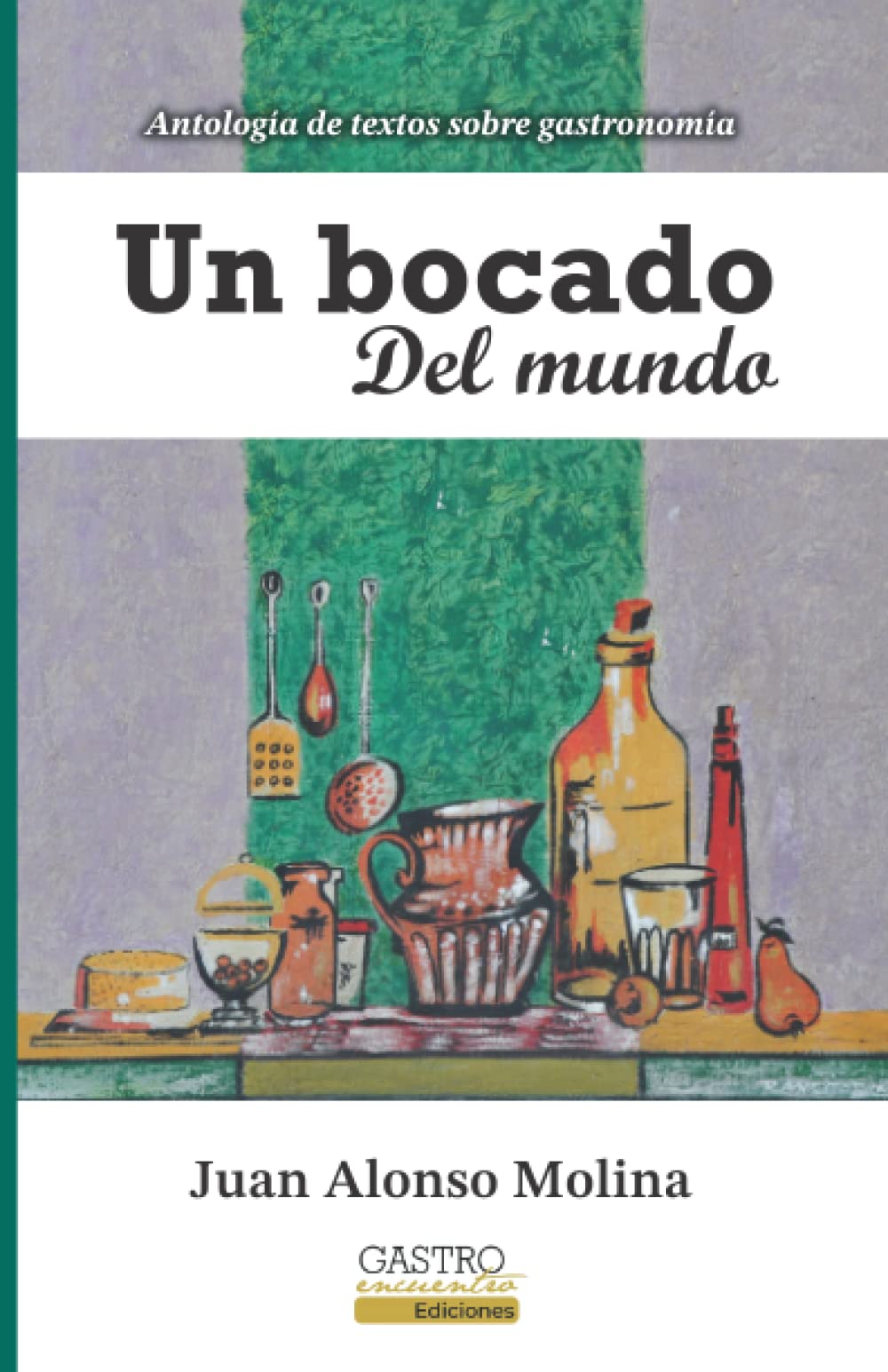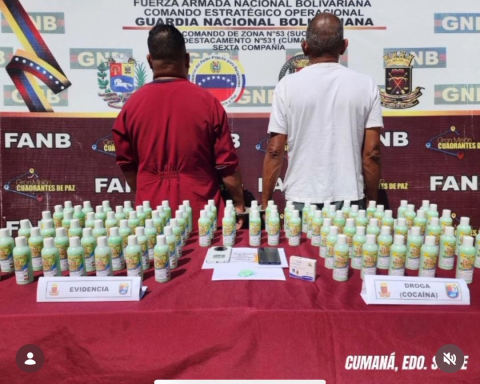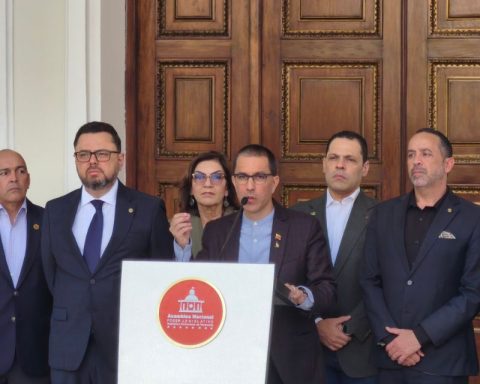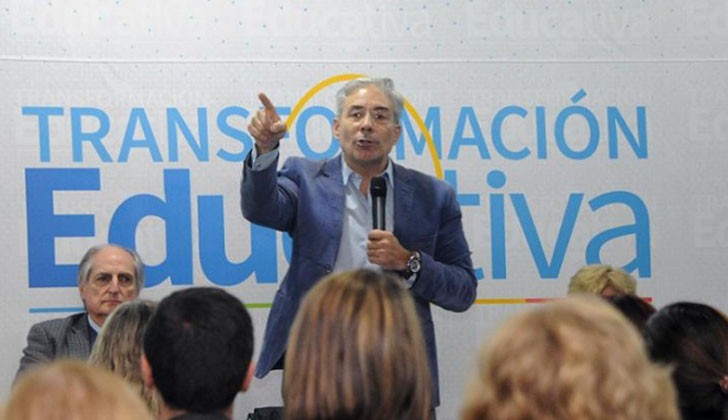By JULY BOLIVAR
There are not many cookbooks about a culinary region or country that are published in Venezuela, beyond recipe books, such as drinks, wines and cocktails. Books that reflect or meditate, or simply collect the taste thought about our food, are the exceptions.
A small arbitrary list can show what is known so far from the last half of the 20th century to the 21st century: Sumito Estévez with his two volumes diary of a cookwhere he gathered his articles published in the newspaper The Nationalor Rafael Cartay with an extensive work on the cuisines of regions such as Mérida and Barinas, in addition to his kaleidoscopic work on the country and its emblematic dishes, in Between tastes and flavors, or the Afro-Venezuelan Pantry, first book on the presence of Africa in our kitchen; Ocarina Castillo and her sustained work in the Anthroposabores diploma course at the UCV and especially her latest book together with Esther Sánchez Botero from Colombia, Colombia and Venezuela, history, food and shared knowledge, where he develops extensive research on our culinary composition of encounters and differences with the country next door; or the quartet of books by Miro Popic, which covers the country that we are until reaching the habits of whiskey consumers that we assume with pride. And anthologies about our diverse gastronomy collected by foundations such as Venezuela in positive, or The reasons of taste compiled by writer Karl Krispin. In short, they are books that go slowly, like those thought by the historian José Rafael Lovera, since he introduced the historical reading of Venezuelan food and cooking in the academy with his History of Food in Venezuela. Rum has also been studied by Rossana Di Turi, gastronomic communicator, recently deceased, with Venezuelan Rum, and the research carried out by José Ángel Rodríguez and his emblematic History of the Cane. Or the books on the history and development of cattle and buffalo cattle in the country, by Otto Gómez. A mixed book that includes an extensive recipe book such as History and anthology of Margarita cuisine by Angel Felix Gomez. They are not commercial books, with little circulation, but they are sold and are increasingly necessary to understand us as a society. We still lack a corpus that collects the developments of regional cuisines, particularly in a mega-diverse country.
A bite of the world* is the last book that has been published in Venezuela in terms of reflection on Venezuelan gastronomy, based on readings about a region that historians have called the larense region, written by Juan Alonso Molina M., historian, cook, gastronomic chronicler of the Lara state. Texts narrated with a careful language with a precise Castilian and rich in definitions, arguments, and in a certain way of a time when it was spoken completely. A set of essays, chronicles, and specialized articles on various aspects of the cuisine of central western Venezuela and evaluative notes of other books on the subject. Articles from different times and concerns, which, despite changes in taste, either due to scarcity or abundance, are still present in Venezuelan cuisine, written from a perspective of multidisciplinary interpretation of the gastronomic phenomenon.
The greatest quality of this book is the coherence it has as a whole, a snail that carries in its strategy the taste memory of childhood, which in the end is the definitive thing in our tastes. Or how the author writes: “Perhaps the first and main of the ephemeral arts or the ephemeral art par excellence, but also the art of the masses, whose learning and practice is always at the hand of those who know how to listen to the legacy of seasoning , regardless of gender or social status. It is also, by dint of habit and repetition, associated with a landscape, an art of memory and sensitivity. The author adds an aspect about what a problem in the nation these days means: “Food, as can be seen from this undoubtedly incomplete inventory of its multiple functions, cannot be considered from an exclusively nutritional or biological point of view, if you want to operate changes in the eating habits of a people, in order to overcome deficiencies that may be hindering their healthy development.
This book launched by the new company Gastroencuentro Ediciones, based in Puerto Cabello, an initiative of the brothers José Alfredo and Iván Darío Sabatino Pizzolante, is organized into five sections, in addition to the prologue by Rafael Cartay: First courses, where the author defines the tone and interests of his chronicles With a Palate Manifesto, Life in a slice (memory), Our Mother who is in all the kitchens, a tribute to and importance of women in the kitchen and family memory; Memory of the family kitchen, Dad’s markets Week (of eating not so) Holy, accurate observation on the change of the condumios of a religious tradition. Lara, one bite after another; Venezuela on the table; The world in a bite. Finally, in the last chapter, Gastronomy to the letter, 3 books are reviewed and he adds his introduction for a pioneering humorous poetry book on the gastronomic theme and habits of a city like Caracas, named Rafael Michelena Fortoul, “El vate Chicharrita”, antecedent of Aquiles Nazoa; Culinary technology in Venezuela, according to Rafael Cartay and Alicia Chuecos; The years of cooking: regarding the publication of the cookbook touch fire, in 2006; and the review of the work of Edgar Abreu Olivo: between fields, ports, pioneers and food brands.
With this new book, Juan Alonso Molina reiterates his interest in regional cuisines and the formation of the food regime in Venezuela. We know about him Lara table and tableclothseveral essays published in specialized magazines and in anthological books.
*Juan Alonso Molina Morales (2022). A bite of the world. Anthology of texts on gastronomy. Gastroencounters Editions. Puerto Cabello, Venezuela.
















